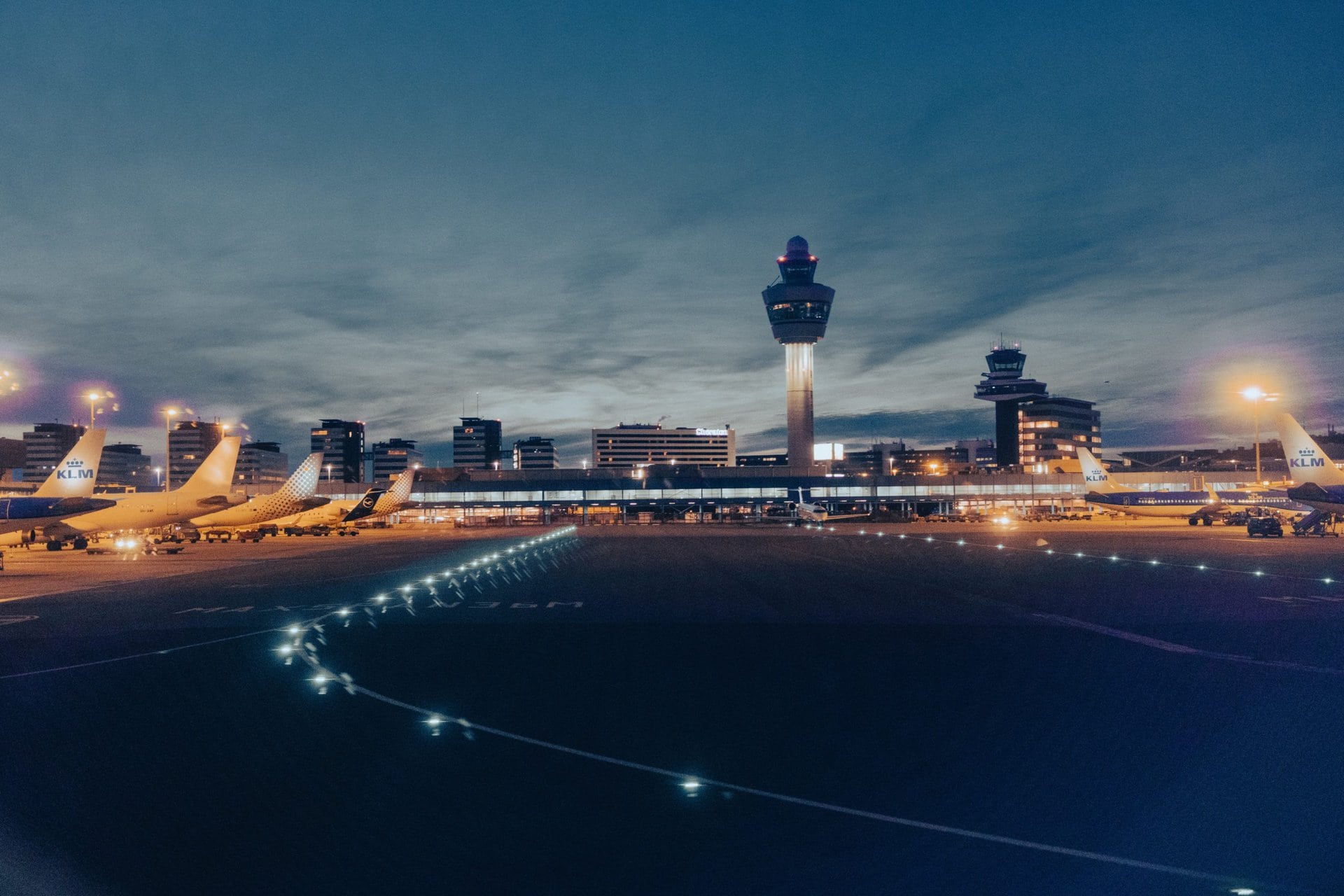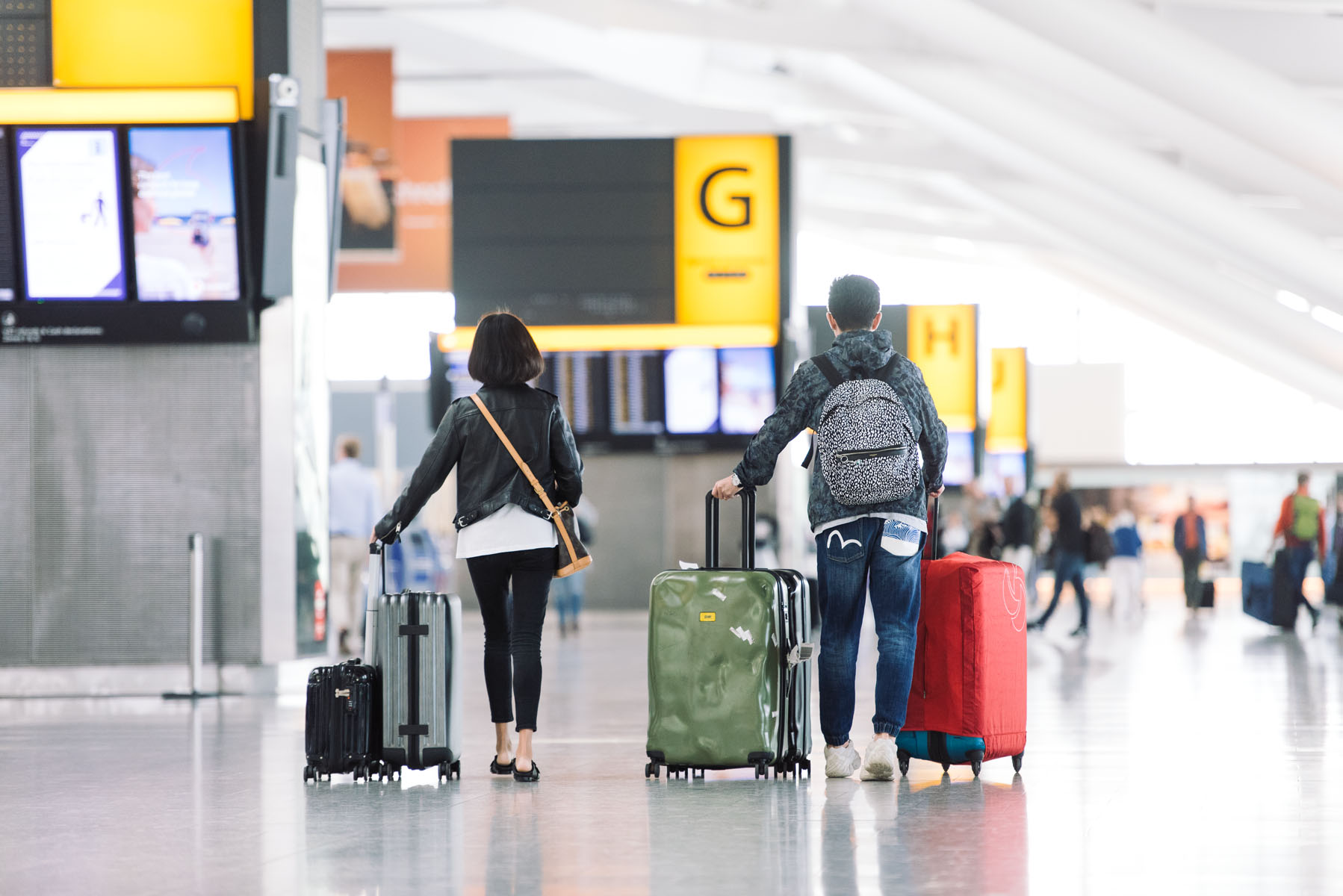Airlines vs. Environment: Dutch Court Upholds Flight Cap at Amsterdam Schiphol Airport
The number of flights permitted at the major European hub are set to be cut by 8 percent in an effort to reduce the impact of noise pollution and emissions in the local area
by Lauren Smith
July 11, 2023

Photo: Amsterdam Schiphol Airport. Courtesy of Rita Candeias / Unsplash
An appeals court has ruled that the Dutch government has the power to limit flights at Amsterdam Schiphol Airport (AMS) to minimize the environmental impact on the surrounding area. This decision is unfavorable to the airline industry.
The Amsterdam Court of Appeal ruling will permit the Dutch government to reduce flights through the hub by 8 percent from next year, from a maximum of 500,000 to 460,000.
The government said it seeks to reduce the impact of noise pollution and nitrous oxide emissions from the airport on the densely-populated local area.

Photo: Courtesy of Amsterdam-Schiphol. Airport
The Dutch Ministry of Infrastructure said the ruling represents “an important step in achieving a new balance between the economic importance of an internationally well-connected airport on the one hand, and the interests of residents and the environment on the other hand.”
Schiphol, majority-owned by the Dutch state, has said it’s committed to becoming “quieter, cleaner and better,” even at the cost of growth. The airport, the third largest in the European Union, recently shelved plans to build another runway on the site.
KLM is unhappy
However, airlines, including KLM, the largest at the airport, have pushed against the planned reduction in flight numbers, which they’ve argued contravenes EU laws and international open skies agreements.
KLM, joined by fellow carriers Delta Air Lines, Corendon, easyJet, and TUI, and backed by the International Air Transport Association (IATA), won an earlier judgment by a lower Dutch court, which found that the Dutch government had failed to consult relevant stakeholders, including airlines, as required by European law, before curbing flight numbers through an airport. However, the government appealed the decision, leading to last week’s judgment, permitting it to cap flights through October 2024.

Photo: Courtesy of KLM
KLM, the Dutch flag carrier, said it was “disappointed” by the ruling and added that it’s “currently unclear” how Schiphol will implement the flight cap. The airport has said it’s currently consulting with airlines about restricting night-time flights and banning private jets.
KLM noted it remains “convinced” that it can reduce noise pollution and emissions at Schiphol through “cleaner, quieter, more fuel-efficient” operations rather than a capacity cap. It’s independently developed a 44-measure program to reduce noise levels around the airport while maintaining the same number of flights, including phasing out flights between midnight and 5:00 AM, banning private jets, and swapping its older, louder Boeing 737s for more efficient, quieter Airbus A320neos and A321neos.
No Immediate Effects in Sight
Despite the cap, which could be extended through 2025, passengers will unlikely see an immediate impact on their travel experience at AMS. With airlines still rebuilding their capacity following the pandemic shutdown, flights through Schiphol remained at just 400,000 last year, well below the capped number and down from the 2019 peak of 497,000.
However, the limits will impact new market entrants like JetBlue, which has already struggled to obtain scarce slots at the airport. The cap may also prompt KLM to route more of its flights through its partner Air France’s hub at Paris Charles de Gaulle (CDG).

Photo: Courtesy of JetBlue
The airlines will likely also appeal the decision to the Dutch Supreme Court.
However, industry officials are privately worried that Schiphol’s ruling and cull of slots could be the start of a broader push to restrict flights throughout the continent on environmental grounds. The French government has already banned short-haul domestic flights, and Spain is on the same path. However, the European Commission has watered down the prohibition in France, which has insisted that departures only be axed where quick, frequent rail alternatives are in place.
Amsterdam-Brussels link in Jeopardy
The CEO of KLM, however, has actively encouraged its customers to take rail alternatives on short-haul flights between Amsterdam Schiphol and Brussels (BRU), which are currently connected by four 55-minute flights per day.
Marjan Rintel told Politico that the airline is willing to scrap its Amsterdam-Brussels flights as long as sufficient rail alternatives are available.
“If there are connections, if the connections are good, if they arrive at Schiphol, if they run also in the weekends, we are more than willing to stop flying to Brussels,” said Rintel. “We are moving our customers from plane to train.”



